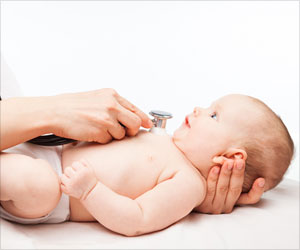India contributes to a major share of the child mortality due to infections such as measles, said study.

‘Measles is highly infectious and as per the WHO, a country needs to ensure that at least 95% of all children receive two doses of the vaccine.’





Measles is a highly contagious viral diseases spread by contact with an infected person through coughing and sneezing. The infection is followed by high fever, rash that spreads over the body, cough, running nose and red
watery eyes. Measles weakens the immune system and often leads to serious complications, including blindness, encephalitis, severe diarrhea and respiratory infections such as pneumonia. Speaking about this, *Padma Shri Awardee, Dr KK Aggarwal, President, HCFI*, said, “Vaccination is an extremely effective harm reduction strategy. This, along with several other strategies, was also discussed at the first-ever harm reduction conference organized last month in New Delhi. Vaccinations are a way of taking the preventive approach as opposed to curing a condition once it has set in. The measles-rubella (MR) vaccine helps prevent two diseases. It is administered when the child is between 9 and 12 months and once again between 16 and 24 months. The government is providing this vaccine free of cost through its immunization programme. The need of the hour is large-scale awareness on the benefits of vaccination and encouraging more families to get their children immunized.”
Unlike measles, rubella is a mild viral infection that mainly occurs in children. A woman who is infected with the rubella virus during the early stage of pregnancy has a 90% chance of transmitting it to the fetus. Some issues that the virus can cause include hearing impairments, eye and heart defects and brain damage in newborns. It can also lead to spontaneous abortion and fetal deaths.
Adding further, *Dr Veena Aggarwal Executive Editor IJCP group *said, “There is still reluctance, opposition, and slow acceptance of vaccination apart from other operational challenges. The challenges faced in delivering lifesaving vaccines need to be addressed from the existing knowledge and lessons must be learnt from past experiences.”
*The Vaccination Schedule under the UIP is as follows.*
Advertisement
DPT (Diphtheria, Pertussis and Tetanus Toxoid) 5 doses; Three primary doses at 6weeks,10weeks and 14 weeks and two booster doses at 16-24 months and 5 Years of age.
Advertisement
Hepatitis B vaccine 4 doses; 0 dose within 24 hours of birth and three doses at 6, 10 and 14 weeks of age.
Measles 2 doses; first dose at 9-12 months and second dose at 16-24months of age.
TT (Tetanus Toxoid) 2 doses at 10 years and 16 years of age
TT – for pregnant woman two doses or one dose if previously vaccinated
within 3 Year In addition, the Japanese Encephalitis (JE vaccine) vaccine was introduced in 112 endemic districts in campaign mode in phased manner from 2006 to 2010 and has now been incorporated under the Routine Immunization Programme.
Source-Medindia









